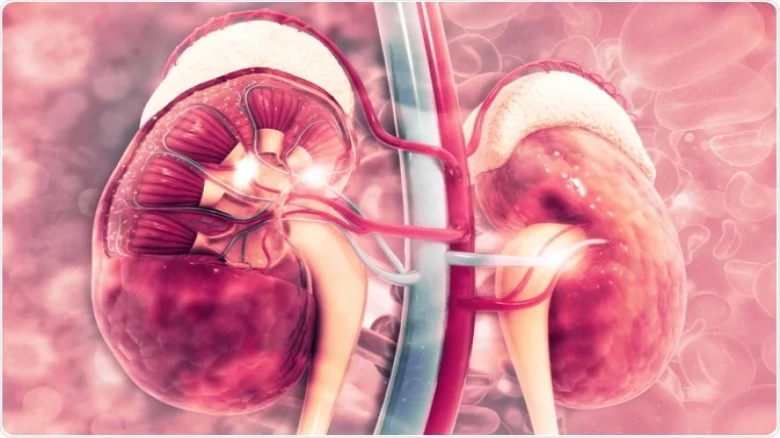Regional

The primary cause of the cardiovascular disease is uremic toxins that are not removed by dialysis. The most common side effects of dialysis are low blood pressure (hypotension), blood clots, hernia, bloating, and weight gain. Some dialysis patients experience muscle cramps, usually in the lower leg. Fortunately, Ayurveda can assist! ”
mso-themecolor:text1">
mso-themecolor:text1">
mso-themecolor:text1">Digital Desk: Globally, one in every ten people is
affected by severe kidney disease, and nearly 850 million people are estimated
to have kidney diseases due to a variety of causes. However, Ayurvedic experts
insist that if you are diagnosed with kidney failure early on, there are
certain steps you can take to prolong kidney functions with Ayurveda. According
to them, if you work closely with an Ayurvedic expert, your chances of living a
healthy life despite kidney disease are good.
mso-themecolor:text1">
mso-themecolor:text1">Although there are numerous causes of kidney failure,
there are some guidelines that, if followed, can help a person delay kidney
failure, which leads to dialysis or a kidney transplant. Dr. Varun Koul, VP -
Medical Directorate at Glamyo Health, told HT Lifestyle, "Patients with
Chronic Renal Failure (CRF) have damaged kidneys that become incapable of
filtering waste products like salt, excess water, urea, and so on out of the
circulatory system, resulting in metabolic toxicity." In such cases, an
artificial substitute mechanism known as dialysis is used to take over the
kidneys' filtration role."
mso-themecolor:text1">
mso-themecolor:text1">He went on to say, "Even though Ayurvedic doctors
have traditionally used herbs like Varuna and Gokshura to treat kidney failure,
these practices have only recently been scientifically validated." Blood
Urea and Creatinine levels of Chronic Renal Failure patients treated with
Ayurvedic drugs for one month improved statistically significantly. Given that
regular dialysis sessions over a long period of time can be financially
draining for the vast majority of Indians, Ayurvedic treatments can be an
affordable yet effective alternative."
mso-themecolor:text1">
color:black;mso-themecolor:text1">Diabetes and high blood pressure are the two
leading causes of kidney failure, but according to Dr Puru Dhawan, Kidney
Expert at SRIAAS, these diseases can be controlled - or prevented - with
Ayurveda to help prolong kidney function.
color:black;mso-themecolor:text1">Diabetes and Kidney Function Prolongation
mso-themecolor:text1">Dr. Puru Dhawan revealed that diabetic patients must keep
their blood glucose levels within an acceptable range and take all prescribed
Ayurvedic medicines because certain Ayurvedic medicines for high blood sugar
levels can protect diabetic patients' kidneys.
major-fareast;color:black;mso-themecolor:text1;font-weight:normal;mso-bidi-font-weight:
bold">Prolonged Kidney Function and High Blood Pressure
mso-fareast-font-family:"Times New Roman";mso-fareast-theme-font:major-fareast;
color:black;mso-themecolor:text1;font-weight:normal;mso-bidi-font-weight:bold">"High
blood pressure is the second leading cause of kidney failure and end-stage
renal disease," according to Dr. Puru Dhawan (ESRD). Patients suffering
from high blood pressure, also known as hypertension, should take their
Ayurvedic medications as directed. You may experience some of the symptoms that
dialysis patients commonly report. Some dialysis patients experience fatigue,
feeling tired and exhausted all of the time."
mso-fareast-font-family:"Times New Roman";mso-fareast-theme-font:major-fareast;
color:black;mso-themecolor:text1;font-weight:normal;mso-bidi-font-weight:bold">
color:black;mso-themecolor:text1">"Patients with renal disease on dialysis
are at a higher risk of developing cardiovascular disease," he said. The
primary cause of the cardiovascular disease is uremic toxins that are not removed
by dialysis. The most common side effects of dialysis are low blood pressure
(hypotension), blood clots, hernia, bloating, and weight gain. Some dialysis
patients experience muscle cramps, usually in the lower leg. Fortunately,
Ayurveda can assist! ”
color:black;mso-themecolor:text1">"Ayurveda helps by treating damaged
kidney tissues and reducing the frequency of dialysis," he exclaimed. As a
result, Ayurvedic medications have the potential to treat kidney failure at all
stages of the disease. "Patients with renal disease on dialysis are at a
higher risk of developing cardiovascular disease," he said. The primary
cause of the cardiovascular disease is uremic toxins that are not removed by
dialysis. The most common side effects of dialysis are low blood pressure
(hypotension), blood clots, hernia, bloating, and weight gain. Some dialysis
patients experience muscle cramps, usually in the lower leg. Fortunately,
Ayurveda can assist! ”
mso-themecolor:text1">"Ayurveda helps by treating damaged kidney tissues
and reducing the frequency of dialysis," he exclaimed. As a result,
Ayurvedic medications have the potential to treat kidney failure at all stages
of the disease. Instead, changing your diet, drinking more water, and using
certain Ayurvedic herbs can help you maintain your kidney health. If patients
follow the basic principles of Ayurvedic medicine for their kidney damage,
herbal medicines can help them stop dialysis. Following healthy, dietary and
lifestyle recommendations are the best thing you can do. Reduce your consumption
of highly processed foods that are high in sugar and sodium. Drink plenty of
water and increase your physical activity. Obesity is a significant contributor
to the risk of kidney disease, as are unhealthy food choices and a sedentary
lifestyle."
Leave A Comment